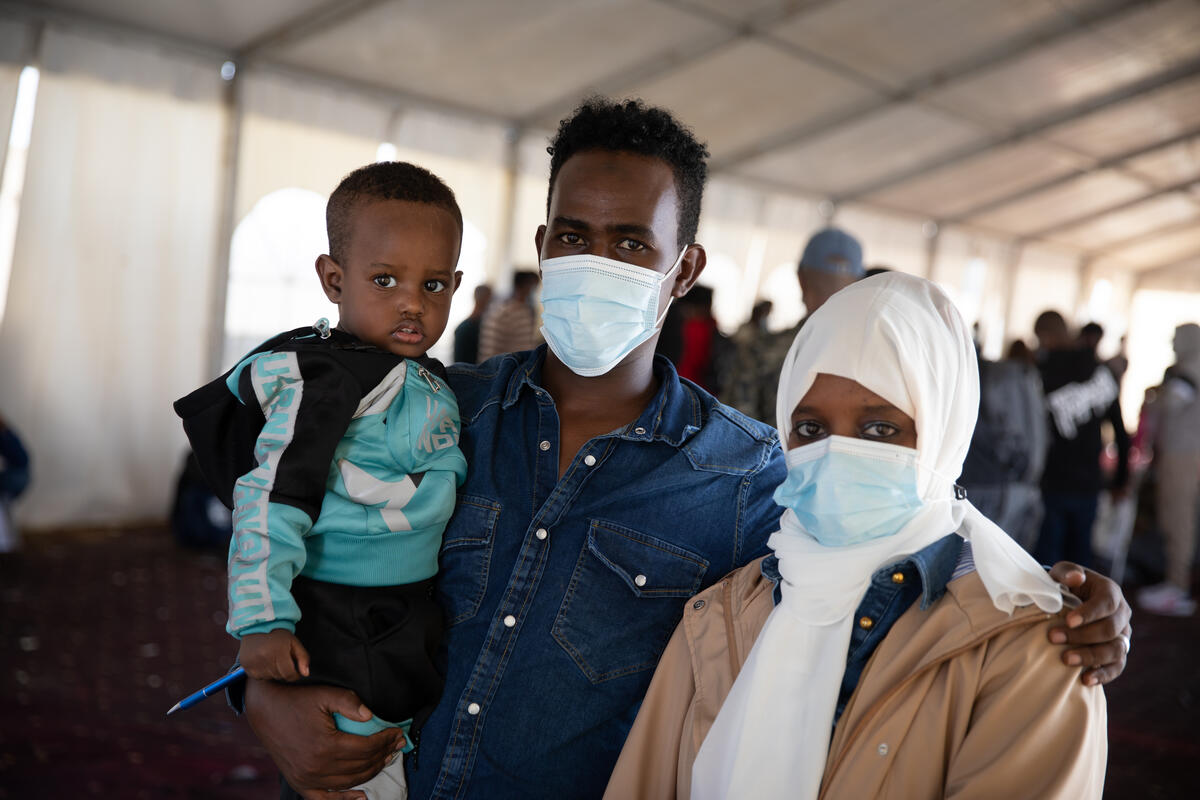Time running out for long-exiled Eritreans
Time running out for long-exiled Eritreans

KHARTOUM, Dec. 30 (UNHCR) - As the clock winds down towards the year-end cessation of refugee status for more than 320,000 Eritreans in Sudan, thousands are coming forward seeking continued refugee protection while others are asking to be taken home or applying to remain as immigrants.
The number of Eritreans seeking interviews to determine their need for continued refugee protection has more than doubled in two weeks as the Dec. 31 deadline approached.
"There has been a pick-up in registration for refugee status determination these last several weeks," said Ahmed Said Farah, UNHCR's representative in Sudan.
More than 25,100 family heads representing over 100,000 Eritreans have so far approached the 30 joint UNHCR-government of Sudan screening teams operating in refugee hosting areas of Khartoum, Port Sudan and eastern regions, Kassala, Wad Madane and Gedaref.
"The mass information campaign to inform the Eritrean refugees of their options is active, and registration centres are open daily," the UN refugee agency's Farah said.
The Eritreans finally got the message UNHCR has been passing through radio stations and print media since last May, when, in consultation with governments, it announced that the group refugee status that has benefited Eritreans who fled their country as a result of the war for independence or the recent border conflict with Ethiopia is finally ending.
In announcing his agency's decision on cessation last May, UN High Commissioner for Refugees Ruud Lubbers made clear to Eritrea's long-time exiles: "I believe that these two groups of refugees from Eritrea should no longer have a fear of persecution or other reasons to continue to be regarded as refugees."
The root causes of the Eritrean refugee problem no longer exist, UNHCR determined, as fundamental and durable changes have occurred with the end of the 30-year-old war with Ethiopia in 1991, and Eritrean independence in 1993. Similarly, peace has returned with the signing of a cease-fire agreement between Ethiopia and Eritrea in June 2000.
Both the 1951 Refugee Convention and the 1969 OAU Convention, which is applied in Africa, stipulate that the Convention shall cease to apply to any refugee "if he can no longer, because the circumstances in connection with which he was recognised as a refugee have ceased to exist, continue to refuse to avail himself of the protection of the country of his nationality."
Eritrean refugees are also asking to join UNHCR' s repatriation convoys from Sudan back to Eritrea, the homeland that many have never seen. The convoys are scheduled to resume next Sunday after a six-month hiatus due to heavy rains that began last July and tension in eastern Sudan's border region last October that interrupted some relief operations. More than 20,000 people have so far registered to return home once the convoys resume.
They will join the more than 45,000 Eritreans who have already gone home since UNHCR resumed repatriation convoys 20 months ago. In the meantime, another 58,000 Eritreans went home under their own steam for a total of 103,000 returnees since May 2001.
The repatriation programme will continue until everyone who has registered has gone home. Eritrean returnees with UNHCR receive a reintegration package that includes blankets, mats, jerry cans, kitchen utensils and two months of World Food Programme (WFP) food aid.
Those Eritreans found to be still in need of international protection after undergoing individual screening will be able to remain in their current host country as refugees. Those who do not qualify for asylum after 2002 but who do not wish to return home because of strong family, social or economic links with the host country will be expected to legalise their stay in Sudan, or the other countries where they currently reside.
The largest number of Eritrean refugees remains in Sudan. UNHCR currently assists more than 91,000 people in eastern Sudan's refugee camps, while more than three times that number have spontaneously settled in urban centres. Some 5,000 Eritrean refugees also remain in Ethiopia, Yemen and Kenya.








